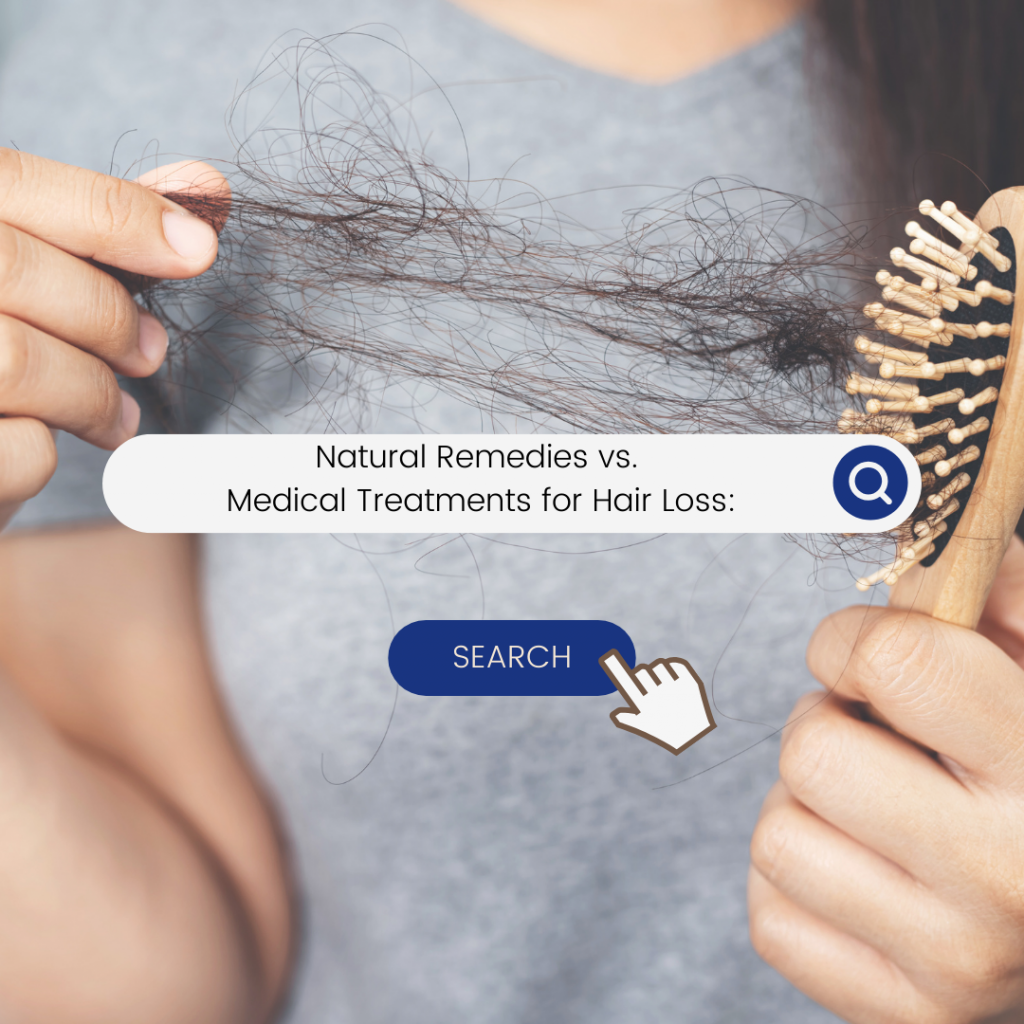No products in the cart.
April 19, 2024

Hair loss is a common concern that affects millions of people worldwide, leading to a myriad of available treatments ranging from natural remedies to scientifically-backed medical solutions. In this blog, we delve into the effectiveness of natural remedies compared to established medical treatments like minoxidil, finasteride, and hair transplants, helping you decide the best approach for managing hair loss.
Natural remedies for hair loss often appeal to those seeking a holistic approach. Here are some popular natural options:
While these remedies can support hair health and reduce hair loss, their effectiveness varies widely among individuals and lacks the strong, consistent backing of clinical research.
In contrast to natural remedies, medical treatments for hair loss offer solutions that have been rigorously tested for efficacy and safety:
Choosing between natural remedies and medical treatments for hair loss depends on individual preferences, the severity of hair loss, and desired outcomes. Those looking for a holistic approach may start with natural remedies, but for those seeking significant, proven results, medical treatments are often the more reliable choice. Always consult with a healthcare professional or a hair loss specialist to tailor a treatment plan that best suits your individual needs and expectations.

We opened our clinic in Aventura, FL to offer top quality hair restorations at competitive prices.
Follow us on :
Copyright © 2024 American Mane | Powered by American Mane